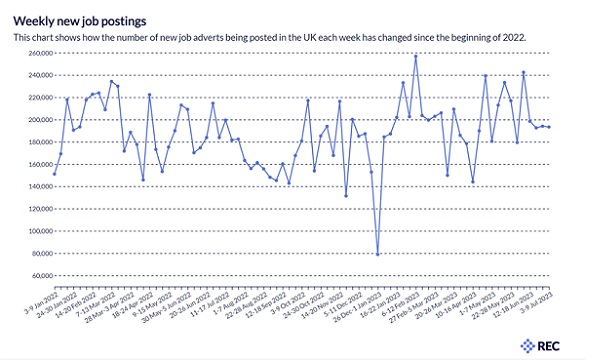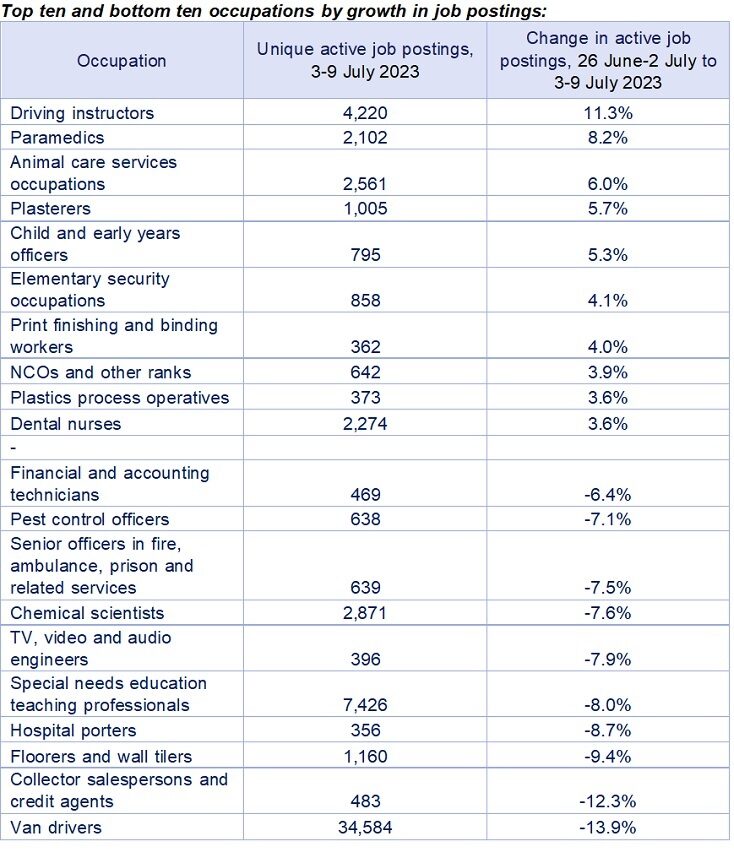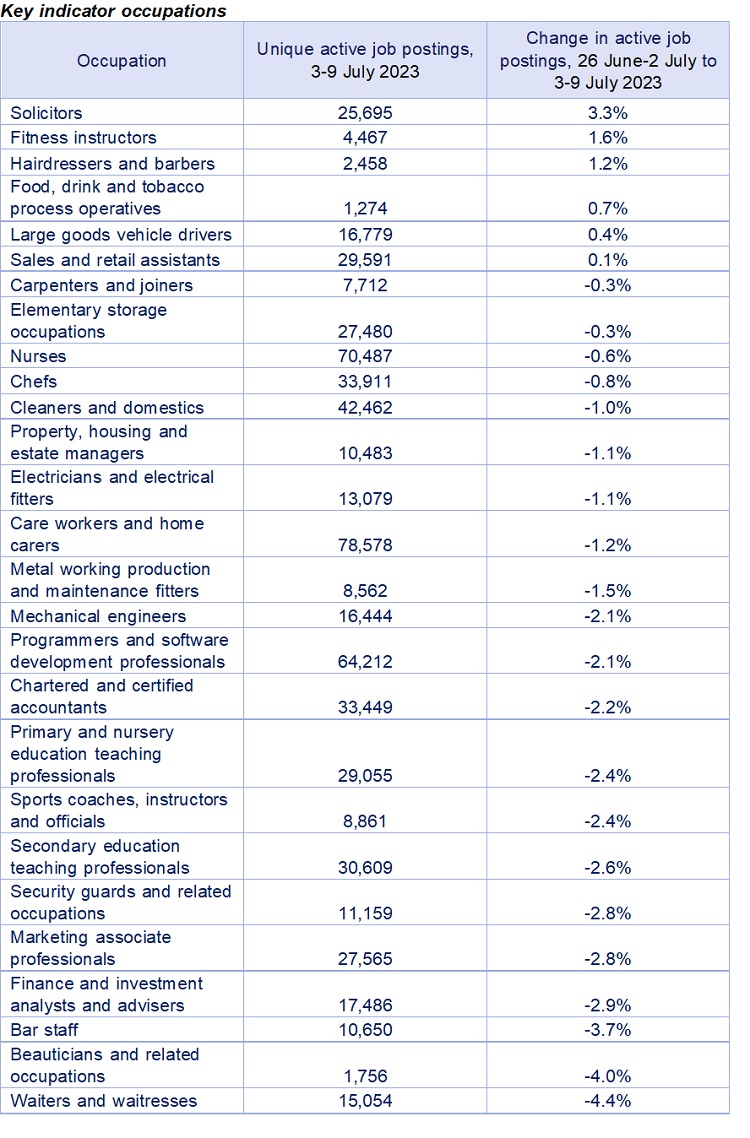Despite greater candidate availability and slow growth, businesses are still finding hiring challenging due to tight labour supply, the latest REC data shows.
With over 2.2 million active job adverts addressing workforce issues should remain a key priority, according to the Recruitment & Employment Confederation (REC) and Lightcast’s latest Labour Market Tracker.
Neil Carberry, Chief Executive of the REC, said:
“New job adverts are coming to the market at a steady rate, and activity levels overall remain high. The rise of over 50% in terms of active adverts since this time last year reflects the fact that firms are still struggling to fill roles. Employers should be working to integrate their people and commercial plans, re-designing roles and making sure their offer is competitive. This is where partnerships with good recruiters make a difference.
“For governments, this data shows that the decline in economic inactivity will not be enough in its own to fill the gaps businesses face as they try to drive growth. An effective industrial strategy, uniting thinking about competitiveness, investment and employment is overdue. The people strand of any strategy must encompass skills, but also key issues of labour supply like childcare, transport, immigration and welfare-to-work support.”
The number of active postings in the week of 3-9 July 2023 was 2,248,918, a 1.2% decrease compared to the previous week (26 June-2 July 2023) – but 53.3% higher than the year before (4-10 July 2022). Some of this is a response to shortages, as firms leave adverts open for longer than normal.

It would require around double the population of Birmingham to fill all these posts.
There were 193,300 new job postings in the week of 3-9 July 2023 – 0.4% lower compared to the week before (26 June-2 July 2023). New job postings were reduced from the previous week but 8.6% higher than the year before (4-10 July 2022). New job postings have remained stable above 140,000 since January 2022. The stable, though high, trend in new jobs postings suggests the primary driver of high active advert numbers is filling jobs taking longer.
The REC has produced a separate special data report that looks at summer demand for work. This is because of REC members’ concerns about entrenched labour shortages hampering the summer economy.
- There was an increase in demand for hospitality roles this year (April-June 2023), compared to April-June 2022 for 10 out of 13 occupations we measured. Among those jobs with the greatest percentage growth in demand were bar staff, waiters, bakers and cooks. Only London and Wales recorded a reduction in demand for the hospitality roles in the period we measured.
- There was a surge in demand for food, drink and tobacco process operatives, who perform a role in the food supply chain.
Elsewhere there was a growth in vacancies for construction this summer in every region of the UK (April-June 2023 compared to April-June 2022). - Demand for agricultural and gardening work this summer was also up on summer 2022 in all regions apart from Northern Ireland.
- There was a far greater demand for travel agency managers, air travel assistants and leisure and theme park attendants in April-June 2023 than in April-June 2022.
Neil Carberry said:
“It is so frustrating for hospitality firms that they can’t take full advantage of the anticipated strong demand this summer because of the failure to overcome labour shortages. Wages have risen fast in this sector and firms have invested much more in hospitality career development, but even this isn’t enabling firms to move fast enough. In the short-term, this is forcing venues to reduce opening hours, service offers or trading days despite plentiful demand. It leaves businesses getting on their feet after the pandemic unable to maximise their sales to help offset the impacts of inflation.
“It was inevitable and vital that some construction roles were added to the Shortage Occupation List this week because the result of continuing labour shortages was less promptly built, stalled or delayed building projects. We also need to step up on training UK workers – but government has failed to address businesses’ concerns about the apprenticeship levy.
“Businesses that rely on good summer trade can help themselves by hiring recruiters who can use their insight of the labour market and sector specialism to help find workers fast and advise them on how to retain them. Businesses can also offer flexible working to help people work over the summer, offer more attractive and immediate training opportunities and tap into the over 50s labour supply.
“Government must act to support super summers for businesses. It can do this by, for example, updating and adding more roles onto the Shortage Occupation List and doing it quicker. Reforming the flawed apprenticeship levy and more effective polices on flexible working and encouraging economically inactive people back to work will also help.”









